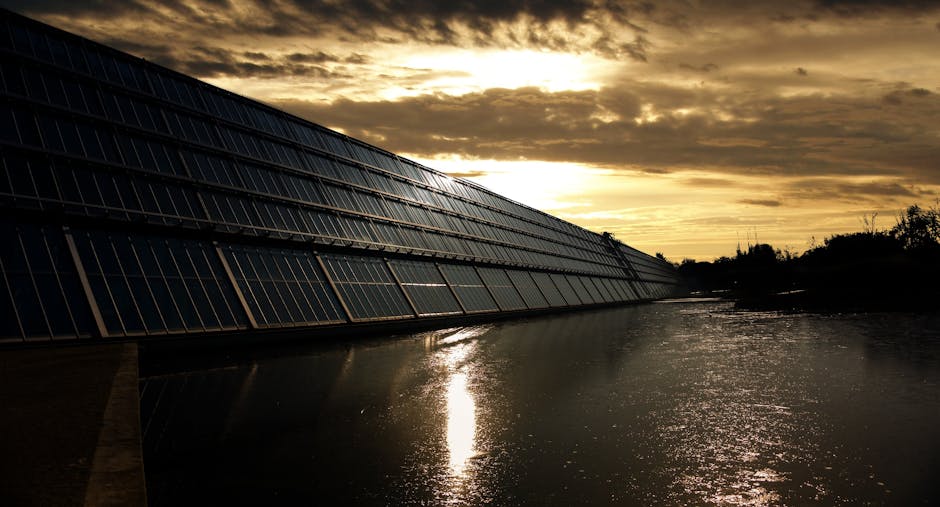Cleaning Solar Panels With Hard Water
Solar panels are a fantastic way to harness renewable energy, but they require regular maintenance to function efficiently. One of the most common issues that solar panel owners face is the buildup of dirt, dust, and mineral deposits, especially when using hard water for cleaning. In this article, we will explore the challenges of cleaning solar panels with hard water, the best practices for maintaining their efficiency, and some unique tips that you may not find elsewhere. Let’s dive in!
Understanding Hard Water and Its Effects
Before we get into the cleaning process, it’s essential to understand what hard water is and how it affects solar panels.
What is Hard Water?
Hard water contains high levels of minerals, primarily calcium and magnesium. When hard water evaporates, it leaves behind these mineral deposits, which can create a cloudy or streaky appearance on surfaces, including solar panels.
Effects of Hard Water on Solar Panels
- Reduced Efficiency: Mineral deposits can block sunlight from reaching the solar cells, reducing their efficiency and energy output.
- Streaking and Cloudiness: Hard water can leave unsightly streaks and spots on the panels, affecting their appearance.
- Long-Term Damage: Over time, mineral buildup can lead to corrosion or damage to the panel’s surface.
Why Regular Cleaning is Important
Regular cleaning of solar panels is crucial for maintaining their efficiency and longevity. Here are some reasons why you should prioritize cleaning:
- Maximize Energy Production: Clean panels can produce up to 30% more energy than dirty ones.
- Extend Lifespan: Proper maintenance can help extend the lifespan of your solar panels.
- Prevent Costly Repairs: Regular cleaning can prevent the buildup of dirt and minerals that may lead to expensive repairs.
Best Practices for Cleaning Solar Panels with Hard Water
Cleaning solar panels with hard water can be tricky, but with the right techniques, you can do it effectively. Here are some best practices to follow:
1. Use Deionized Water
If possible, use deionized or distilled water for cleaning your solar panels. This type of water has had its mineral content removed, which means it won’t leave behind any deposits. If you don’t have access to deionized water, consider investing in a water filtration system.
2. Choose the Right Time
Timing is everything when it comes to cleaning solar panels. Here are some tips:
- Cooler Temperatures: Clean your panels early in the morning or late in the afternoon when temperatures are cooler. This prevents the water from evaporating too quickly, which can leave streaks.
- Overcast Days: If possible, clean your panels on cloudy days to avoid direct sunlight, which can also cause water to evaporate quickly.
3. Use Soft Brushes
When cleaning your solar panels, use a soft brush or sponge to avoid scratching the surface. Here’s how to do it:
- Gentle Pressure: Apply gentle pressure while cleaning to avoid damaging the panels.
- Long-Handled Brushes: Consider using a long-handled brush to reach high panels without needing a ladder.
4. Avoid Abrasive Cleaners
Never use abrasive cleaners or harsh chemicals on your solar panels. These can scratch the surface and cause long-term damage. Instead, stick to mild soap and water solutions.
5. Rinse Thoroughly
After cleaning, make sure to rinse the panels thoroughly with clean water. This step is crucial to remove any soap residue and prevent mineral buildup from hard water.
Unique Tips for Cleaning Solar Panels
Here are some unique tips that can help you maintain your solar panels more effectively:
1. Use a Squeegee
A squeegee can be an excellent tool for cleaning solar panels. After washing the panels, use a squeegee to remove excess water. This helps prevent streaks and ensures a clean finish.
2. Install a Rainwater Collection System
If you live in an area with frequent rainfall, consider installing a rainwater collection system. This water is naturally soft and can be used for cleaning your solar panels without leaving mineral deposits.
3. Schedule Regular Maintenance
Consider hiring a professional cleaning service to maintain your solar panels regularly. They have the right tools and expertise to clean your panels effectively without causing damage.
Signs Your Solar Panels Need Cleaning
It’s essential to know when your solar panels need cleaning. Here are some signs to look out for:
- Visible Dirt and Dust: If you can see dirt or dust buildup on your panels, it’s time to clean them.
- Reduced Energy Output: If you notice a drop in energy production, dirty panels may be the culprit.
- Streaks or Spots: Hard water stains or streaks can indicate that your panels need a thorough cleaning.
Conclusion
Cleaning solar panels with hard water can be challenging, but with the right techniques and tools, you can maintain their efficiency and appearance. Remember to use deionized water when possible, clean during cooler times, and avoid abrasive materials. Regular maintenance will not only enhance energy production but also extend the lifespan of your solar panels. By following these tips, you can ensure that your solar panels remain in top condition for years to come.
FAQs
Can I use a pressure washer to clean my solar panels?
It’s not recommended to use a pressure washer, as the high pressure can damage the panels. Stick to gentle cleaning methods instead.
How often should I clean my solar panels?
It’s generally recommended to clean your solar panels at least twice a year, but you may need to clean them more often if you live in a dusty area or experience heavy rainfall.
What should I do if I notice damage to my solar panels?
If you notice any cracks or damage, contact a professional immediately for repairs. Regular inspections can help catch issues early.




